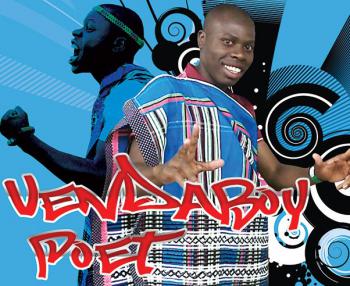Literature / Poetry
“I discovered my talent for poetry at a time I was striving to find my true identity in a different tribe,” said Lutendo Evans Mugagadeli.
Popularly known as VendaBoy Poet, he used poetry to describe his disgust at discrimination and nepotism when he was a young boy who had just moved to another school. That was when his family moved from Manyima village in the Nthabalala area to Soekmekaar.
He had to further his primary education in a hostile environment, since his peers often bullied him because of his language and culture. “I couldn’t speak Sepedi clearly and those people thought they were superior to me and they undermined my culture,” he said.
He sought attention through his poetry. In most of his initial poems, he praised the Tshivenda culture, language and tradition. Ultimately, he triumphed against the challenge and his peers started tolerating him and respecting his cultural background.
Since then, his poetry has been inspired by nepotism and hate. “These are the factors that influenced me to establish thoughts of unity and peace among different cultures,” he said.
This 25-year-old poet has been focusing seriously on his poetry since he passed Grade 12 in 2008 and it has earned him various accolades. He scooped his first ever best poet award at the Mapungubwe Festival in 2008 and was also named the best community poet in Molemole. The following year, he was recognised as the best poet by the group Limpopo the musical.
His family didn’t like it when he opted to pursue poetry instead of furthering his studies. They initially criticised him, hoping he would go to university, but the young man persisted on his journey. “They never thought or understood what I was doing, but today they are very supportive and they know that poetry is within me,” he added.
His talent grew bigger and he started performing at various events. He has often performed at the Polokwane theatre and appeared in various television programmes. In 2012, he was named the best Tshivenda praise singer during the Tshivenda Music Awards (Tshima).
In 2013, he was nominated in the same category and last year he was nominated in three categories, namely best poet, best praise singer and most downloaded song at the South African Traditional Music Awards (Satma).
He uses poetry to narrate the diverse culture of the South African society. “I write my poems in Tshivenda, English, Sepedi, Isizulu as well as Xhosa. This also helps me as a poet to explore the diversity of this country,” remarks Vendaboy Poet.















